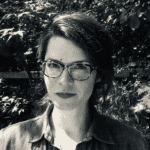A Critical Reflection on Humanitarian Reform – Past, Present, Future
The report led by Eleanor Davey and Fernando Espada captures vital insights from a workshop that brought together humanitarian reformers, scholars, and sector leaders to dissect the evolving landscape of reform. With an eye toward the complex interplay between climate change, geopolitics, and structural limitations, it offers a nuanced examination of the barriers that persist within humanitarian practices. The report traces the roots of today’s reform efforts, questioning whether entrenched structures can adapt to a world of increasing crises and identifying areas where systemic constraints and organisational inertia often thwart meaningful change.
From themes of localisation and colonial legacies to the influence of vested interests and the challenges of envisioning alternative futures, the report provides an unflinching look at the humanitarian system’s critical juncture. It invites humanitarian professionals, students, and researchers to consider both the resilience and the fragility within this ecosystem and to explore fresh, actionable approaches to reform that foreground accountability, equity, and adaptability. Download the report here to engage with these vital conversations on reshaping the humanitarian response to meet the demands of our era.


